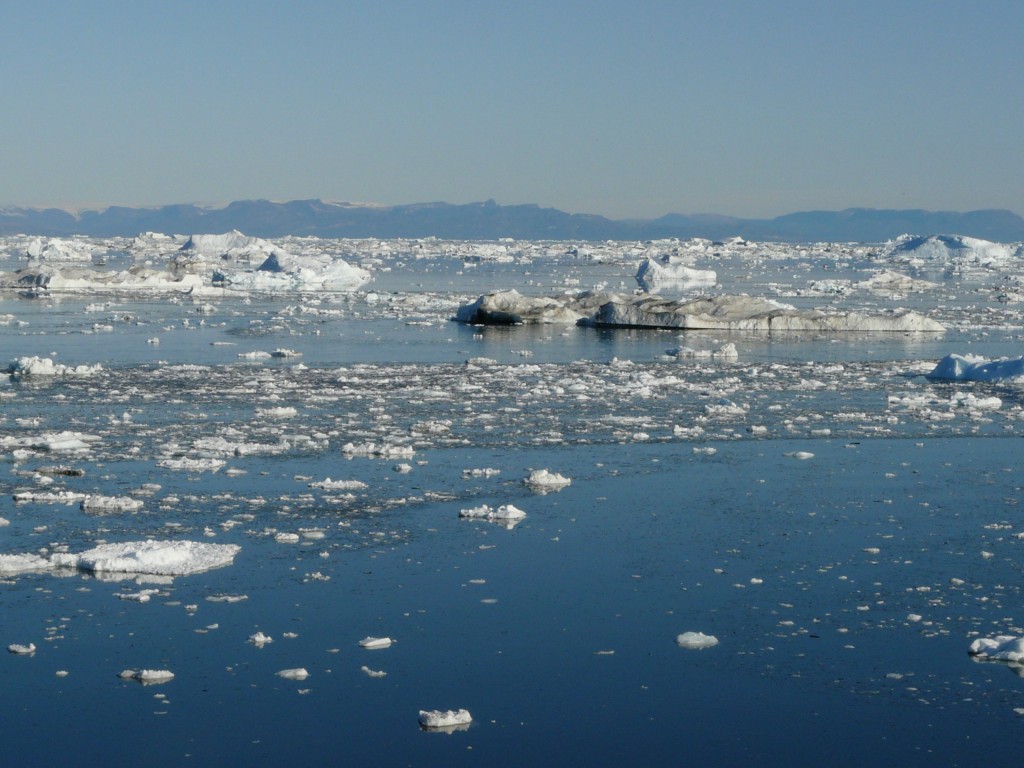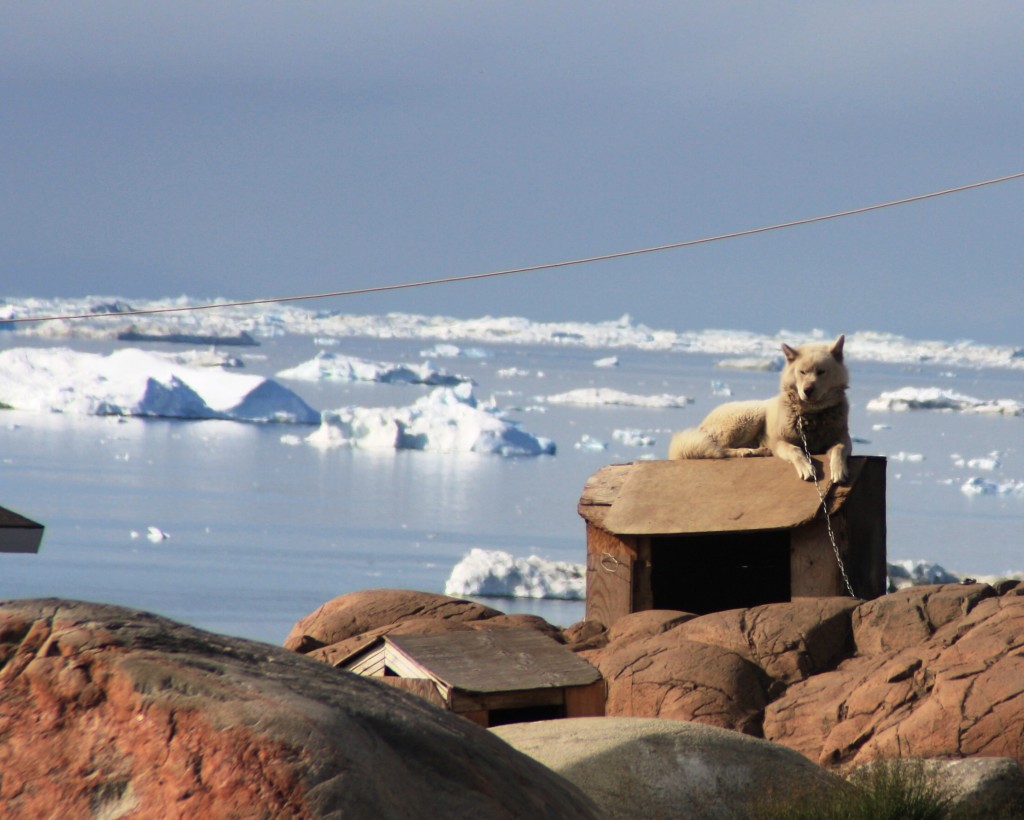Climate change back on the agenda?
Trawling the media for climate-related stories over the weekend, I began to see some signs that the message might be getting across after all. I had just put the finishing touches to my story on “Why we don’t want to hear about climate change“, based on interviews with sociologist Kari Marie Norgaard from the University of Oregon and psychologist Per Stoknes from the Norwegian Business school, when I heard US Secretary of State John Kerry’s announcement that the USA and China would be cooperating and exchanging data in the run-up to the 2015 Paris climate talks, where a new climate deal is supposed to be agreed. I found myself feeling just a little bit more optimistic. If these two key players really put climate protection into action, maybe we will be able to get somewhere. A report on a study by the Chinese government on the disastrous air pollution in Beijing is not happy reading, but gives grounds to assume the Chinese government has to be serious about taking emissions in hand.
Arctic ambassador – a sign of the times?
Another announcement by the US Sec of State leaves me with mixed feelings. There is going to be a US ambassador for the Arctic. On the one hand, it is always good to see the Arctic getting attention. On the other hand, the motivation does not make me jump for joy. An item from the news agency AFP writes of “a region increasingly coveted by several countries for its oil and other raw materials”. Indeed. That is the worrying bit. In case you missed it, (the Arctic announcement did not get huge coverage), Kerry said in his statement:
“The Arctic region is the last global frontier and a region with enormous and growing geostrategic, economic, climate, environment and national security implications for the United States and the world…President Obama and I are committed to elevating our attention and effort to keep up with the opportunities and consequences presented by the Arctic’s rapid transformation – a very rare convergence of almost every national priority in the most rapidly-changing region on the face of the Earth”. It is good to see climate and environment get a mention at least.
A “Stern” warning
The Guardian had a guest article by Nicholas Stern, the author of that famous Stern Report on the economics of climate change back in 2006 (yes, it really is that long ago).The background to this, of course, is the wild weather in the UK. Now I do not wish that kind of weather on anyone, but in terms of drawing attention to climate change it has certainly been very important. Stern writes “The record rainfall and storm surges that have brought flooding across the UK are a clear sign that we are already experiencing the impacts of climate change”. He makes a clear case for linking the two. He also brings in the other extreme weather around the globe, including Australia, Argentina and Brazil and the devastating typhoon Haiyan in the Philippines last year. Stern has clear advice for the politicians:
“This is a pattern of global change that it would be very unwise to ignore.” Stern says the risks are even bigger than when he wrote the 2006 report. “Since then, annual greenhaouse gas emissions have increased steeply and some of the impacts, such as the decline of Arctic sea ice, have started to happen much more quickly.”
I hope a lot of decision-makers and influential business people have read or will still read Stern’s article. He calls for rapid action and investment. He has a clear message for the European Union, currently not the most popular international organisation with the British government. “The UK whould work with the rest of the EU to create a unified and much better functioning energy market and power grid structure. ‘this would also increase energy security, lower costs and reduce emissions. What better was is there to bring Europe together?” Other measures recommended would be to implement a “strong price on greenhouse gas pollution across the economy”. This, remember, is a renowned economist, not an environmental campaigner. He also warns against the temptation to cut overseas aid to fund adaptation to climate change. “It would be deeply immoral to penalise the 1.2 billion people around the world who libve in extreme poverty…In fact, the UK should be increasing aid to poor countries to help them develop economically in a climate that is becoming more hostile largely because of past emissions by rich countries”- Yes. Yes. Yes.
Don’t let the weather distract from your climate awareness!
The other piece of writing which inspired me over the weekend was in the ImaGeo blog by Tom Yulsman: “Move over polar vortex“. He looks at the new analysis produced by the UK’s Met Office:
“If a new scientific analysis is correct, the repeated bouts of extreme weather on either side of the Atlantic are indeed unusual – and both are manifestations of a chain of climatic teleconnections that reach half way around the globe and all the way to the tropics”.
There is a lot of talk in this piece of whether the polar vortex is weak (as discussed in my article More Arctic Weather in a Warming World?) Or actually “particularly intense”. I would recommend you read Tom’s blog for yourselves for the details and his views. But the insight I would leave you with here as “food for thought” is where he quotes a paper in the journal Science.
“They conclude that the recent discourse focusing on the possible connections between winter weather and climate change distracts from the bigger issue: that is, regardless of extreme winter weather, climate change is undoubtedly real, and that harsh winters are not what we really need to be concerned about going forward as the climate continues to change”.
People love to talk about the weather. But if we use every instance of unusual weather to question the overall trend of global warming, with all the complex effects that has on our climate, winds, oceans etc, we run the risk of losing a necessary sense of urgency when it comes to reducing emissions. I am reminded, as I often am, of a young climate ambassador from the Netherlands during a fact-finding trip to Alaska in 2008. As we stood at the Visitor’s Centre for a glacier which is now no longer visible from that spot because it has retreated so far, he said that just brought home to him how “everything is connected”. Our everyday lifestyle in the industrialised world is melting the Arctic ice – and that, in turn, is contributing to the changing climate patterns which can radically alter the planet.





![6418.3[1]](http://blogs.dw.com/ice/files/6418.31.jpg)












